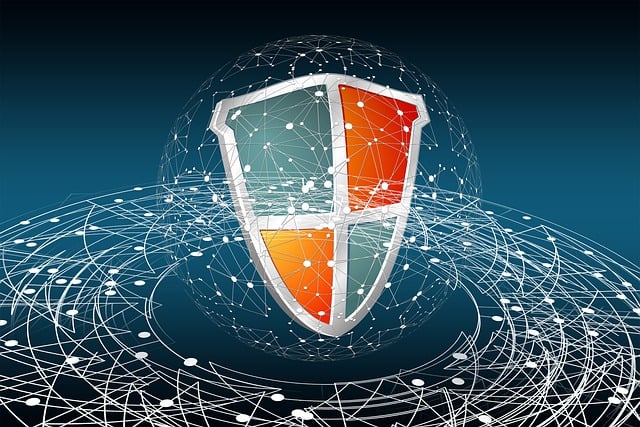Small businesses face rising cyber threats like ransomware and data breaches, leading to financial losses and reputational damage. Cyber Insurance for Data Protection offers crucial coverage for customer data, intellectual property, and trade secrets, providing peace of mind and business continuity. Policies include incident response, legal liability, data restoration, and notification expenses. This insurance protects against malicious attacks, human error, and accidental data exposure, helping businesses recover from incidents and maintain customer trust. It's an essential tool to safeguard digital assets, mitigate financial losses, and navigate the evolving cyber threat landscape.
In today’s digital landscape, small businesses face unprecedented cyber threats. Understanding these risks and their potential impact on operations and finances is crucial. This article delves into the importance of Cyber Insurance for Small Businesses, exploring how it protects against data breaches, ransomware attacks, and other cyber incidents. We’ll discuss the role of data protection in policy coverage, common attack vectors, financial mitigation strategies, essential coverage options, and tips for choosing the right provider.
Understanding Cyber Threats and Their Impact on Small Businesses

Small businesses are increasingly becoming targets for cybercriminals, with threats such as ransomware, phishing attacks, and data breaches on the rise. These incidents can have devastating consequences, including financial loss, damage to reputation, and legal liabilities. Data protection is a key concern, as sensitive customer information, intellectual property, and trade secrets can be compromised. Cyber insurance for small businesses provides crucial coverage for these risks, helping to mitigate potential losses and ensuring business continuity.
By investing in cyber insurance, small businesses can gain peace of mind knowing that they are protected against the financial impact of a cyber attack. Policies often include incident response services, legal liability coverage, and funds to help cover the costs of data restoration and notification. This proactive approach allows businesses to focus on growth and innovation rather than managing the fallout from a successful cyber threat.
The Role of Data Protection in Cyber Insurance Policies

Cyber insurance policies have evolved to include robust data protection measures, recognizing the invaluable nature of an organization’s digital assets. These policies aim to safeguard sensitive information, such as customer data, financial records, and intellectual property, from malicious attacks, human error, or accidental exposure. By offering comprehensive coverage for data breaches and privacy incidents, cyber insurance provides a safety net that helps small businesses mitigate significant financial losses.
Data protection is a cornerstone of effective cyber insurance, ensuring that businesses are equipped to handle the escalating risks posed by the digital landscape. Policies may include incident response services, legal defense costs, and notification expenses, enabling companies to address data breaches promptly and maintain regulatory compliance. This proactive approach not only safeguards customer trust but also fosters business continuity, allowing small enterprises to navigate the challenges of the cyber realm with confidence.
Common Causes of Cyber Attacks Targeting Small Enterprises

Small businesses are increasingly becoming attractive targets for cybercriminals due to their often underdeveloped digital security measures and valuable data they hold. According to reports, small enterprises face higher attack rates compared to larger organizations, with malicious actors leveraging easily exploitable vulnerabilities to gain unauthorized access. Common causes of cyber attacks include phishing schemes, where attackers impersonate trusted sources to trick users into revealing sensitive information; malware infections through infected emails or downloads; and ransomware assaults, which encrypt crucial data until a ransom is paid. These attacks can result in significant financial losses, reputational damage, and legal consequences for small businesses, making cyber insurance for data protection a vital consideration.
How Cyber Insurance Can Mitigate Financial Losses and Business Disruptions

Cyber insurance plays a pivotal role in mitigating financial losses and business disruptions that can arise from cyberattacks, data breaches, or other digital security incidents. By providing coverage for forensic investigations, crisis management, legal fees, and business interruption costs, cyber insurance acts as a safety net, shielding small businesses from the significant economic impact of these events.
In today’s digital era, where sensitive customer data is increasingly targeted by malicious actors, cyber insurance offers vital protection for businesses’ most valuable assets—their data. This coverage can help with the cost of restoring or replacing lost or damaged data, as well as providing support during the critical periods following a breach, ensuring that operations can resume smoothly and reputational damage is minimized.
Essential Coverage Options for Comprehensive Cyber Security

Small businesses operating in today’s digital landscape must prioritize comprehensive cyber security, and a robust cyber insurance policy is an integral part of this strategy. When selecting coverage options, several key areas should be considered to ensure maximum protection against potential cyber threats.
Essential coverage options include data protection, which shields against data breaches and the associated costs of notification, credit monitoring, and legal fees. Business interruption insurance covers losses incurred during downtime caused by a cyberattack, ensuring financial stability. Additionally, ransomware protection is critical, as this type of attack can lead to significant revenue loss and operational disruptions. Extending coverage to include liability for third-party data breaches demonstrates a commitment to customer privacy and can strengthen business relationships.
Selecting the Right Cyber Insurance Provider: Tips for Small Business Owners

Choosing the right cyber insurance provider is a crucial step in protecting your small business from potential data breaches and cyber threats. As the digital landscape evolves, it’s essential to select a company that understands the unique risks facing businesses today. Look for insurers with expertise in cyber risk assessment and a proven track record of handling data protection claims.
When comparing providers, consider their coverage options, policy exclusions, and additional services like incident response support and business continuity planning resources. Read reviews from other small business owners to gauge their satisfaction levels and ensure the provider offers competitive pricing without compromising on quality. Additionally, stay informed about industry trends and new cyber threats to make an informed decision that aligns with your business’s evolving needs for robust data protection.
Real-World Examples: The Benefits of Cyber Insurance in Action

Cyber insurance has proven its value through real-world examples, demonstrating the significant benefits it offers small businesses. Consider a retail store that suffered a data breach, compromising customer payment information. Without cyber insurance, the financial burden of notifying affected customers, credit monitoring services, legal fees, and potential regulatory fines could cripple the business. However, with comprehensive cyber coverage, the store can access funds to mitigate these issues, ensuring they remain competitive in the market.
Another example involves a small tech startup whose network was infiltrated by malicious actors. The breach resulted in data loss, including intellectual property and client databases. Cyber insurance stepped in, providing not only financial support for emergency response measures but also resources for data recovery and improved security infrastructure. This proactive approach allowed the startup to bounce back faster, protecting its market position and reputation.
